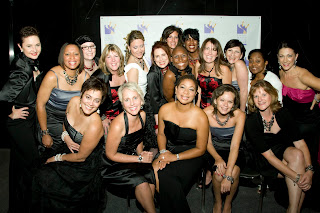This entry was written by Christina Payne, LBBC's Marketing and Communications Intern:
Stereotypes are all around us. Yoga is an exercise that promotes physical and mental wellness for individuals of all races, religions and backgrounds; however, for the African-American community the practice of yoga is not always first choice of exercise even though yoga has healing benefits that have been proven to relieve stress. According to an article on clutch.com, Namaste: Yoga in the Black Community, African-Americans seem to associate the meaning and purpose behind yoga with negative views and opinions. This mindset leads to a culture that doesn’t take advantage of exploring and enjoying the benefits associated with this form of exercise.
High-profile celebrity Russell Simmons practices this form of exercise and has said “Yoga has really helped me feel more comfortable with the idea of being present, the simpliest idea of spirituality, the power of now.” And according to Beyonce, “Every time I take a yoga class, I want to cry. I don’t know if it’s because I’m relaxing, or if it’s that by the end of the class, your body can do things it couldn’t do in the beginning, so you feel accomplished and emotional. It’s therapeutic.”
Yoga on the Steps - 2009
In America, yoga is viewed as a predominately White form of fitness. It is believed that yoga is very expensive and individuals with high incomes can only afford the classes. Reports have shown that there is in fact discrimination among African-American yoga teachers and black attendees. There is a stigma in the African-American community in regards to understanding in fact what yoga really is. In 2009, Wake Forest University released study data supporting the positive impact of yoga on the emotional health of women affected by breast cancer. Yoga can be performed by people of any age or physical condition—no prior experience is necessary.
The lack of knowledge leads to confusion and pushes people away from an exercise that is very beneficial to one’s health. Claims such as “yoga is a religion” or yoga teachers of color being mistaken for assistants or receptionists are a few discrepancies that belittle what yoga is and who is associated with it.
Although the stereotypes and stigmas exist, there has been a movement of growth toward a positive perspective that defines the African-American role in yoga. For example, there are many health issues such as, diabetes, hypertension and heart disease that affect the African-American community and the use of yoga can be of great use when it comes to maintaining good health, relieving stress, and balancing physical and mental strength.
Have you ever tried yoga? Can you admit that you’ve associated the healing exercise with some of the stereotypes listed above? Living Beyond Breast Cancer challenges you to try yoga with over 1,000 breast cancer supporters on the steps of the Philadelphia Museum of Art on Sunday, May 15. For more information, visit yogaonthesteps.org. The signature fundraising event encourages teams and individuals to raise money in support of LBBC’s educational programs for women and families affected by breast cancer. Register today!










